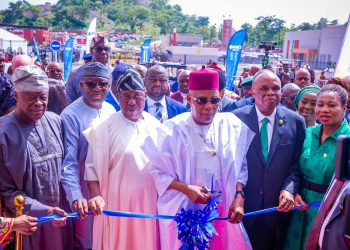Members of South Africa’s parliament have voted on a motion of no-confidence in the country’s president, Jacob Zuma. The vote has tested the loyalty of members of his party, the African National Congress (ANC).
Zuma has survived an attempt to oust in the secret vote that gave him a narrow escape by 198 votes to 177. Even though the ballot was held in secret, the opposition was not able to persuade enough members of Zuma’s ruling African National Congress to side with them.
Media reports say members of the ANC sang in celebration even before the result was formally announced.
The vote has tested ANC members of parliament who wanted to break party ranks and vote to oust their leader.
As head of the party that led South Africa out of apartheid, Zuma won the presidential election in 2009 and 2014, but has faced a number of no confidence votes in the past and has been dogged by criminal investigations and corruption allegations.
More than 50 of the ANC’s 249 MPs would need to vote against the president in order for the no confidence motion to pass.
“The choice before us is a simple one. Either we allow one family, aided and abetted by the President to take everything from us or on behalf of the people of South Africa we take our country back,” said opposition leader Mmusi Maimane, leader of the Democratic Alliance party in an emotional speech that opened the debate.
“This debate is about our integrity as the governing party,” Doris Dlakude, Deputy Chief Whip of the ANC in the National Assembly told reporters.
She claimed the motion of no confidence was the work of an “insurrectionist opposition” whose main aim was to “sow seeds of chaos in society to ultimately grab power.”
“The inherent danger of such a practice, the potential to use money to influence politics and the electorate won’t know what they voted for,” she told the parliament. “We are not sellouts, we know who sent us here, we will vote ANC,” she said.
In Cape Town, thousands of protesters from the various opposition parties amassed near parliament where large television screens have been erected for them to watch the debate that precedes the vote.
Zuma’s supporters were also planning to march.
There was a heavy police presence, according to media reports, with some in riot gear and equipped with razor wire in case of violence.
According to the South African constitution, if he loses the vote, President Zuma and his entire cabinet would have to step down and the speaker of Parliament would take up the presidency for 30 days.
Parliamentary speaker Baleka Mbete decided to make the vote private after an opposition party took the case to the Constitutional Court.



















